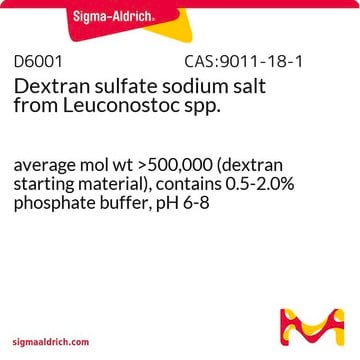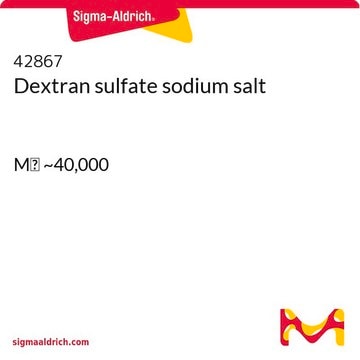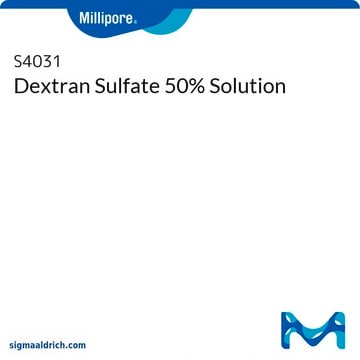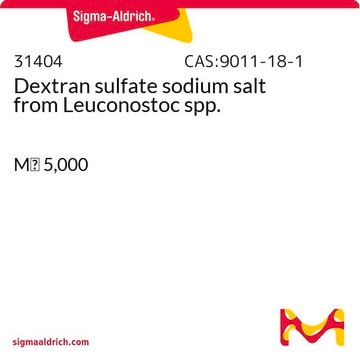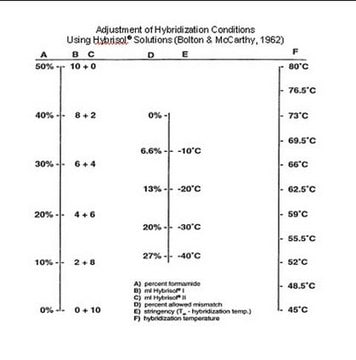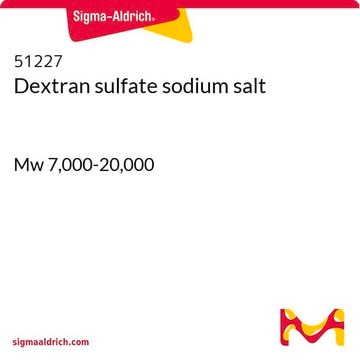31395
Dextran sulfate sodium salt from Leuconostoc spp.
Mr ~500,000
About This Item
Recommended Products
biological source
(Leuconostoc spp.)
form
powder
mol wt
Mr ~500,000
composition
Sulfur Content, 16.0-19.0% (dry basis)
manufacturer/tradename
EDQM
useful pH range
6.0-8.0 (10 g/L)
solubility
H2O: freely soluble 50 mg/mL, clear
anion traces
chloride (Cl-): ≤100 mg/kg
cation traces
Ca: ≤200 mg/kg
Cd: ≤5 mg/kg
Co: ≤5 mg/kg
Cr: ≤5 mg/kg
Cu: ≤5 mg/kg
Fe: ≤5 mg/kg
K: ≤1000 mg/kg
Mg: ≤100 mg/kg
Mn: ≤5 mg/kg
Ni: ≤5 mg/kg
Pb: ≤5 mg/kg
Zn: ≤5 mg/kg
storage temp.
room temp
Looking for similar products? Visit Product Comparison Guide
Application
Biochem/physiol Actions
Preparation Note
Other Notes
Storage Class
11 - Combustible Solids
wgk_germany
WGK 2
flash_point_f
Not applicable
flash_point_c
Not applicable
ppe
Eyeshields, Gloves, type N95 (US)
Certificates of Analysis (COA)
Search for Certificates of Analysis (COA) by entering the products Lot/Batch Number. Lot and Batch Numbers can be found on a product’s label following the words ‘Lot’ or ‘Batch’.
Already Own This Product?
Find documentation for the products that you have recently purchased in the Document Library.
Customers Also Viewed
Our team of scientists has experience in all areas of research including Life Science, Material Science, Chemical Synthesis, Chromatography, Analytical and many others.
Contact Technical Service
